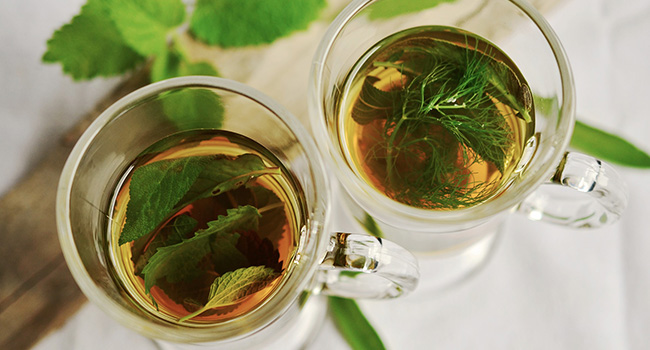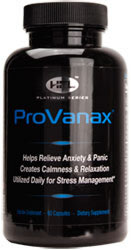 Discovered in 1949 in Japan as a component of green tea, l-theanine was approved for unlimited use in that country in 1964 for nearly all foods – sodas, teas, and chocolates, among others – except those for infants. With its unique taste (umami), l-theanine provides flavor to infusions of green tea. L-theanine is found almost exclusively in teas that belong to the Camellia sinensis family.
Discovered in 1949 in Japan as a component of green tea, l-theanine was approved for unlimited use in that country in 1964 for nearly all foods – sodas, teas, and chocolates, among others – except those for infants. With its unique taste (umami), l-theanine provides flavor to infusions of green tea. L-theanine is found almost exclusively in teas that belong to the Camellia sinensis family.
The more important fact, however, is the calming effect of l-theanine in green tea reported to have direct influence on the brain’s activity in the reduction of stress and stress-related conditions such as anxiety.
L-theanine for Anxiety – How Does It Work?
L-theanine is an amino acid that promotes natural relaxation without the sedative effects of some prescription medicine. Because of its ability to reduce stress perception, supplements containing l-theanine can help improve attention functions in the brain, promote calm and a better mood and improve sleep.
Some consider l-theanine as a herbal remedy and not a supplement owing to the fact that it is not found in the body naturally. L-theanine’s chemical structure is similar to the amino acid which occurs naturally in the body known as glutamate.
This amino acid helps the transmission of nerve impulses to the brain. Upon ingestion, l-theanine mimics glutamate and is transported on one of the amino acids across the intestine and to the BBB.
Scientists believe l-theanine has the capability to cross the “BBB” or “blood-brain barrier.” The BBB is such a dynamic interface of specialized endothelial cells lining the brain’s capillaries. The BBB segregates the brain and the circulatory system and protects the central nervous system (CNS) from potentially hazardous chemicals.
L-theanine binds itself to different glutamate receptors found in nerve cells at the CNS, altering dopamine, serotonin, and GABA (gamma amino butyric acid) levels in the brain. With the presence of l-theanine anxiety levels are lowered and relaxation is induced.
Below is a video by Dr Sam Robbins about how L-theanine works.
Benefits You Can Get from L-Theanine
Here are some of the l-theanine benefits from recently-conducted studies:
- It acts as a protective agent against stress damage caused by the steroid hormone known as cortisol. A product of the adrenal gland, cortisol is activated as a response to stress.
- It helps alleviate depression.
- When taken half an hour before bedtime, l-theanine for sleep improves your quality of sleep. Taken with 5-HTP and melatonin, l-theanine can help improve sleep patterns as well.
- It relieves symptoms of pre-menstrual syndrome or PMS.
- It protects liver damage from excessive intake of alcohol and fatty foods.
- It increases the activity of T-cells (white blood cells which scan for infections and cellular abnormalities) to strengthen the immune system.
- It helps relieve nicotine addiction.
- It balances the amount of glutamate – a major excitatory signal mediator — in the body.
- It improves learning abilities.
- It facilitates weight loss by increasing the levels of thermogenesis.
- It reduces the levels of blood lipids to prevent stroke and heart disease.
- It helps to lower high blood pressure.
- It slows down the development of tumors associated with certain types of cancer.
- It assists during chemotherapy treatment by lessening its side effects.
From Flavoring Additive to Nutraceutical Food
L-theanine is comparable to glutamate a.k.a. gamma-lutamylethylamide, as well as glutamine a.k.a. 5-N-ethyl-glutamine. This comparison makes l-theanine useful in nutrition, an enhancer of flavors that “plugs” into the tongue’s taste receptors like monosodium glutamate or MSG but without MSG’s side effects. Simply put, l-theanine is not a potential neurotoxin, unlike glutamate or MSG.
The tongue’s fifth taste “umami” (the four others being sour, salty, sweet, and bitter) is activated by l-theanine, a taste described as delectable or delicious. This makes l-theanine as a consistently safe, as well as reliable, food additive in Japan and used in the manufacture of chewing gum, processed foods, and beverages. The l-theanine in green tea counteracts the astringency and bitterness released by polyphenols from the leaves.
From being “just” a food additive, l-theanine has gained prominence recently as a “nutraceutical,” a term coined by Foundation of Innovation Medicine founder Stephen L. DeFelice in 1989 to mean the combined benefits of nutrition and pharmaceutical. As a nutraceutical, l-theanine has been shown to be capable of inducing both deep relaxation and cognitive learning through interaction with different neurotransmitters of the nervous system.
How L-theanine Works for Anxiety and Depression
Depression caused by stress activates glucocorticoids, hormones that are capable of disrupting the brain’s chemistry and affect memory and mood. This activation is a result of excessive glutamate levels; in depressed individuals, these levels are in a condition of imbalance.
Research indicates that L-theanine may serve as antagonist to the receptors of glutamate because of its ability to block particular signals produced by these receptors. When this happens, the harmful effects of glucocorticoids are halted and there is restoration of the brain’s chemical balance.
In anxiety reduction, l-theanine works by targeting the brain’s four critical neurotransmitters which regulate attention, arousal, pleasure, and stress. Over-activity of these neurotransmitters will produce restlessness which soon becomes anxiety. L-theanine boosts GABA to inhibit neurochemicals in the brain from firing neurons excessively; this results in the production of sensations such as tranquility, calmness, contentment, and relaxation.
Should You Take L-theanine?
Stress management today involves physical and mental survival. Chronic stress disrupts the normal functions of daily living, causes health problems, affects relationships adversely, and, in some cases, causes death. If you are prone to stress, you can be sure that anxiety and depression will soon follow. Taking l-theanine is a significant solution to overcome the anxiety and depression brought about by stress.
Because it has no addictive or sedative effects, you can take l-theanine oral supplements safely on a daily basis. And because the benefits of l-theanine extend to giving you quality sleep, insomniacs should find l-theanine useful, too (see the list of benefits of l-theanine as mentioned earlier). Regular relaxation whenever stress sets in can come easily, conveniently, and safely from taking l-theanine in tea or supplement form.
Do You Need A Natural Remedy for Worry, Nervousness and Anxiety?
Here’s what one user said about ProVanax: “Having suffered from depression most of my life, I’ve been treated with many anti depressant and anxiety medications. I was literally a walking pharmacy. From weight gain and the numerous and dangerous side effects, I sought out an alternative way to eradicate my depression. I had done a lot of research and some how, I stumbled upon your product … Long story short, everything in my life has improved. No more depression. Concentration has improved. No more anxiety and I have been a consistent user of ProVanax from day one and can’t imagine my life without! …. ” If you want to try an all natural supplement for depression and anxiety, ProVanax might by what you’re looking for. Click here to learn more about the ProVanax and how it can help you. |
AFFILIATE DISCLOSURE
This website contains affiliate links, which means we may receive a percentage of any product or service you purchase using the links in the articles or advertisements. You will pay the same price for all products and services, and your purchase helps support our ongoing research and work. Thanks for your support!
